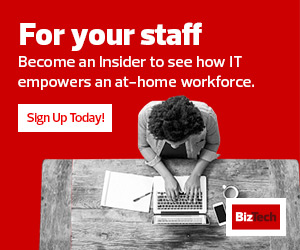2. Is Public or Private Cloud the Right Platform?
Any cloud conversation for a small business inevitably includes some form of a public versus. private cloud debate. Which one is a better fit will be determined by your organization’s business drivers. For example, small businesses looking for the ability to scale economically or keep up with competition may find that the public cloud is the right choice.
If your business wants to move to something like Office 365 and isn’t interested in refreshing hardware, a private cloud environment might be a better fit. When deciding between the two, businesses should also consider how they will need to secure these environments.
3. Who Is Going to Manage Your Cloud Environment?
Whether your small business decides on a public or private cloud offering, that environment is going to need to be managed by someone. All too often, organizations get excited about the possibilities of the cloud and overlook the resources needed to maintain it.
Small businesses with the IT resources to do so may want to manage these environments in-house, but those who don’t have the expertise may want to outsource that management. The decision will likely affect things like budgeting and structure, which could determine which cloud option works best.
4. Will Applications Be Moving Off-Premises with Ease?
It’s important for businesses to look at the cloud options available when deciding on an environment, but it’s important to look at the applications involved as well. There may be some dependencies that are not clearly visible for certain applications, and the move could prove to be challenging and introduce some complexity. Some operational applications may be complicated and burdensome to move off-premises, while others may be better suited for the transition to the cloud.
MORE FROM BIZTECH: Five steps to proactively combat unauthorized IT in the office.
The answer to this question may be affected by the application itself. For example, what is the age of the application? Does it have dependencies that prevent it from being moved to the cloud? If the application is moved to a cloud platform, will the existing IT team have the skills to manage it, or is there a layer of management necessary? If management is being outsourced, it may not be as taxing to move certain applications that may require regular oversight, especially during off hours. Taking an honest look at which of these applications are which will determine what your small business needs from the cloud, making the right choice clearer.
5. What Parts of the Business Will Be Affected?
Finally, small businesses need to establish which parts of the organization will be affected by the move to the cloud. Will this move affect marketing? Will it affect the executive suite? Will it affect sales?
There are also additional considerations within IT. Employees will need to connect to these environments, and these workloads will need to be protected. That means that the organization’s networking and security strategies must come into play in order to have a successful move.
Cloud has arguably never been more important to businesses than is right now. By asking these important questions, small businesses can determine which platforms and options are right for their journeys.
This article is part of BizTech's AgilITy blog series. Please join the discussion on Twitter by using the #SmallBizIT hashtag.












